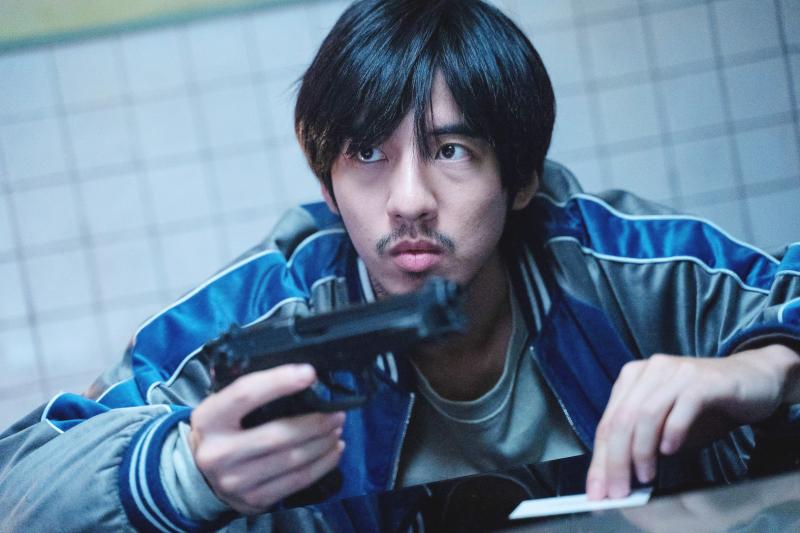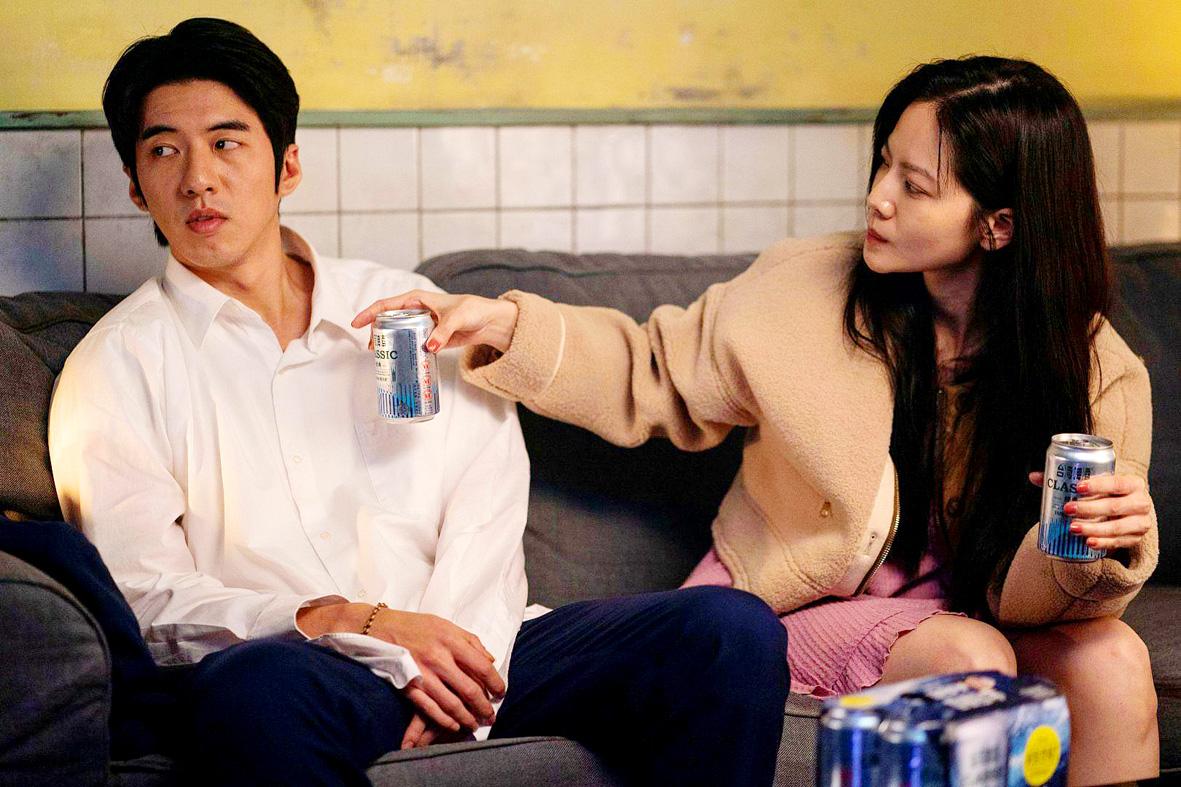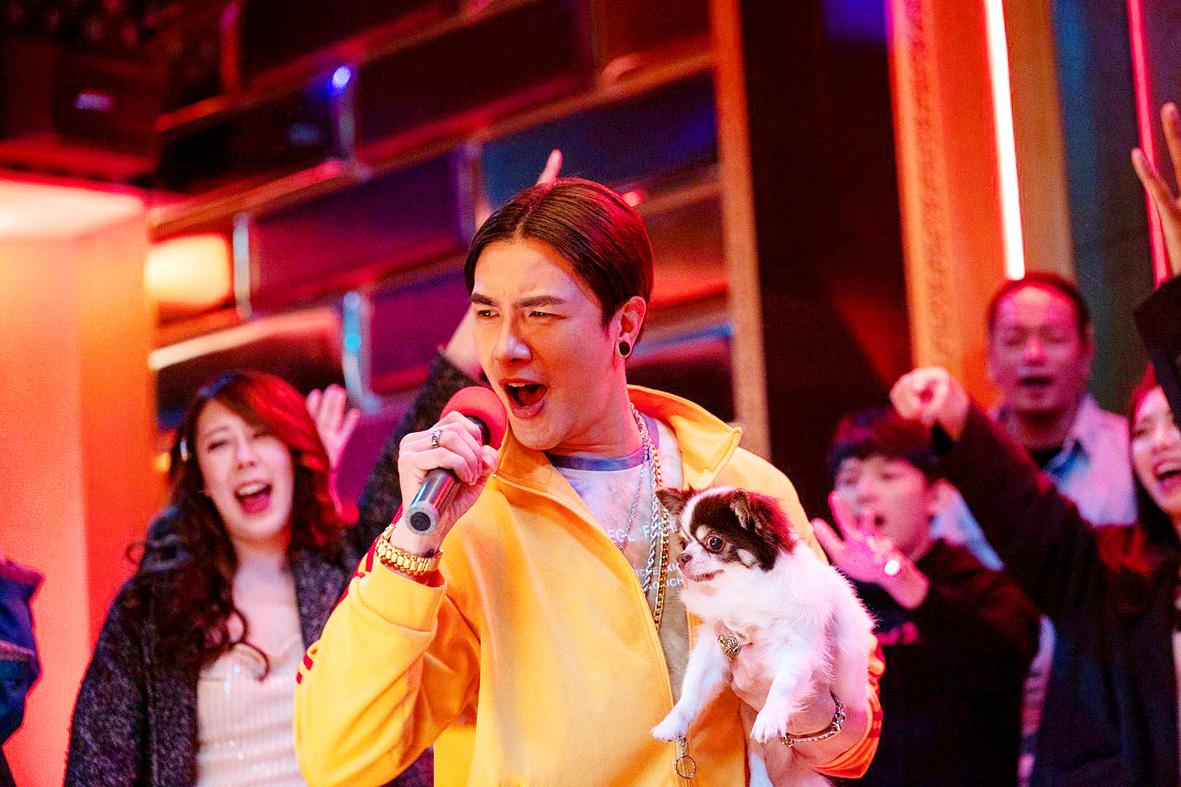After failing to commit suicide (by attempting to consume fatal amounts of cinnamon, chewing gum and carrots), despondent insurance salesman Liang (Fu Meng-po, 傅孟柏) comes across Yukio Mishima’s 1968 novel Life For Sale.
Written two years before Mishima’s dramatic suicide, the book’s protagonist, Hanio Yamada, sees no future and puts his life up for sale in the classified section of a newspaper, leading to a series of ridiculous events.
Liang’s resolve to emulate Yamada is bolstered when he’s fired from his job after punching a coworker. There are no takers at first, but Liang soon finds that the less he values his life, the more other people do. There’s his neighbor Yu-jen (Joanne Tseng, 曾之喬), a single mother whose teenage son desperately needs a heart transplant, a mysterious woman (Janel Tsai, 蔡淑臻) who urgently seeks a test subject for a high-stakes medical experiment, and shady old Mr Wang (Tsai Ming-shiou, 蔡明修), who wants someone to perform dangerous tasks (such as retrieving a stolen dog from a vicious rival crime boss).

Photo courtesy of Vie Vision Pictures Co
Ironically, they all need to keep Liang alive to achieve their goals, and instead of dying, he’s stuck in a never-ending nightmare. It’s a promising premise that has the potential for some hilariously dark reflection on the worth of one’s existence, but the ensuing production goes too heavy on the over-the-top absurdity and violence.
Director Tom Teng (鄧仲謀) tries to cram too much into the film, disrupting the rhythm of the story by making Liang engage in all manner of distracting activity. Life For Sale is a valiant effort to push the boundaries of Taiwanese cinema, but it loses steam halfway through and gets lost in its own ambition.
There are some unnecessary, and tired, tropes included purely for comedic effect, such as the flamboyant gangster boss and characters peppering their speech with weird English, both of which stopped being amusing — and original — decades ago. The touching family elements, an annoying mainstay of most Taiwanese films today, are also distracting in a production that aims for absurdist dark comedy or film noir. In short, the movie tries a little to hard to follow the campy vibe of Mishima’s novel.

Photo courtesy of Vie Vision Pictures Co
Fu does a good job portraying the disheveled loser-turned-unwilling action hero, shedding his usually clean image and delivering a nuanced performance despite the script limitations. He reins in the insanity that’s going on around him without being overly dramatic, and manages to make the character sympathetic despite his obvious flaws.
Fu also enjoys great chemistry with Tseng — the two co-starred in last year’s fantasy television drama Rainless Love in a Godless Land (無神之地不下雨). Unfortunately, Teng doesn’t capitalize on this energy, instead moving on to the weaker and more muddled storylines as Tseng’s character largely falls out of the picture.
Despite these problems, the movie is still mildly entertaining with attractive cinematography and slick action. The animations are a nice touch. The questions it poses are thought-provoking, although having never read the novel, this reviewer is unsure whether that is due to Mishima’s genius.

Photo courtesy of Vie Vision Pictures Co
At least it was interesting enough for me to want to check out the novel and compare.

Cheng Ching-hsiang (鄭青祥) turned a small triangle of concrete jammed between two old shops into a cool little bar called 9dimension. In front of the shop, a steampunk-like structure was welded by himself to serve as a booth where he prepares cocktails. “Yancheng used to be just old people,” he says, “but now young people are coming and creating the New Yancheng.” Around the corner, Yu Hsiu-jao (饒毓琇), opened Tiny Cafe. True to its name, it is the size of a cupboard and serves cold-brewed coffee. “Small shops are so special and have personality,” she says, “people come to Yancheng to find such treasures.” She

In July of 1995, a group of local DJs began posting an event flyer around Taipei. It was cheaply photocopied and nearly all in English, with a hand-drawn map on the back and, on the front, a big red hand print alongside one prominent line of text, “Finally… THE PARTY.” The map led to a remote floodplain in Taipei County (now New Taipei City) just across the Tamsui River from Taipei. The organizers got permission from no one. They just drove up in a blue Taiwanese pickup truck, set up a generator, two speakers, two turntables and a mixer. They

Former Chinese Nationalist Party (KMT) chairwoman Hung Hsiu-chu’s (洪秀柱) attendance at the Chinese Communist Party’s (CPP) “Chinese People’s War of Resistance Against Japanese Aggression and the World Anti-Fascist War” parade in Beijing is infuriating, embarrassing and insulting to nearly everyone in Taiwan, and Taiwan’s friends and allies. She is also ripping off bandages and pouring salt into old wounds. In the process she managed to tie both the KMT and the Democratic Progressive Party (DPP) into uncomfortable knots. The KMT continues to honor their heroic fighters, who defended China against the invading Japanese Empire, which inflicted unimaginable horrors on the

Hannah Liao (廖宸萱) recalls the harassment she experienced on dating apps, an experience that left her frightened and disgusted. “I’ve tried some voice-based dating apps,” the 30-year-old says. “Right away, some guys would say things like, ‘Wanna talk dirty?’ or ‘Wanna suck my d**k?’” she says. Liao’s story is not unique. Ministry of Health and Welfare statistics show a more than 50 percent rise in sexual assault cases related to online encounters over the past five years. In 2023 alone, women comprised 7,698 of the 9,413 reported victims. Faced with a dating landscape that can feel more predatory than promising, many in